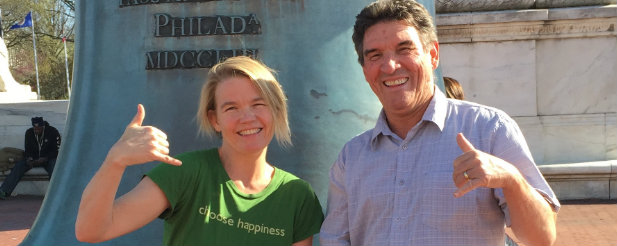By Bob Franco, Director, Office for Institutional Effectiveness, Professor, Pacific Anthropology, Kapi’olani Community College
Members of the SENCER Hawai’i team are actively developing curricular and pedagogical approaches to science and civic engagement, specifically in preparing climate-smart citizens who can act, advocate, and vote for their equitable, diverse, and sustainable communities and their planet. Kapi’olani Community College is leading a national Teagle Foundation supported project with six other community colleges: Kingsborough and Queensborough (NY), Raritan Valley (NJ), Delgado (LA), and Mesa (AZ). Over 60 faculty across the six campuses have students addressing a “Big Question” through their courses and co-curricular initiatives.
The project’s Big Question is: “How do we build our commitment to civic and moral responsibility for diverse, equitable, healthy, and sustainable communities?” Students from all six campuses compose end-of-semester capstone essays focused on four shared reflection prompts aligned with this big question. Faculty teams then rubric-score the essays and develop strategies for deepening student learning of key constructs in the big question. Annual Teagle Faculty Institutes encourage cross-campus dialogues about ways to scaffold student learning throughout the course and across semesters. A pre- and post-survey methodology assesses student behavioral and attitudinal changes, while the rubric scoring of student capstone essays assesses student knowledge gains. For more detail go to Teachingtobigquestions.wordpress.com.
Kapi’olani, along with Guttman Community College (NY), and with support from the Center for Engaged Democracy at Merrimack College and the New England Resource Center for Higher Education (NERCHE), is completing a two-year national research project on how community colleges conceptualize civic engagement in course, program, and institutional learning outcomes.
Dr. Krista Hiser, who leads the Kapi’olani effort on the Teagle project above, has recently been selected to lead the development of sustainability curriculum teaching and learning innovations for the ten campus University of Hawai’i (UH) System. With Matthew Lynch, UH Sustainability Coordinator and the UH Sustainability Curriculum Committee, Hiser will lead a new initiative entitled, “Many Minds…One University,” which this year focuses on the question of “Food Security in Island Hawai’i.” All ten campuses will develop curricular and co-curricular approaches to this Big Question in 2016-17.
Hiser will also be participating on the SENCER Hawai’i team at the upcoming SENCER Summer Institute. A SENCER webinar on “Many Minds, One University” is being planned for fall 2016.
Dr. Hokulani Aikau continues to lead efforts at UH Manoa (UHM) to reinvigorate General Education through civic engagement and high impact teaching practices. She recently served as local host for the Native American and Indigenous Studies Association (NAISA) conference, which brought together over 1100 participants at UH Manoa. Dr. Ulla Hasager coordinates the collaborative work of the entire SENCER Hawai’i team. She, and her team of student leaders from UHM and Kapi’olani, will again be implementing a two week summer enrichment program called “Exploring My Backyard and Beyond” for low income youth at Palolo public housing. Hawaiian and Pacific Islander youth from Palolo learn about backyard food production, traditional Hawaiian food production and ecological systems, and visit STEM programs at UHM and Kapi’olani and Windward Community Colleges. Drs. Aikau and Hasager will also be attending SSI 2016.
This summer, Dr. David Krupp is implementing a STEM/Marine Biology enrichment program for Native Hawaiian teens who also receive college credit at Windward Community College. Dr. Albie Miles from UH West O’ahu is participating in the National Sustainable Agriculture Education Association Conference at UC Santa Cruz. With the focus on Hawaii’s food security in 2016-17, his expertise will provide insight this year and beyond for SENCER Hawai’i.

